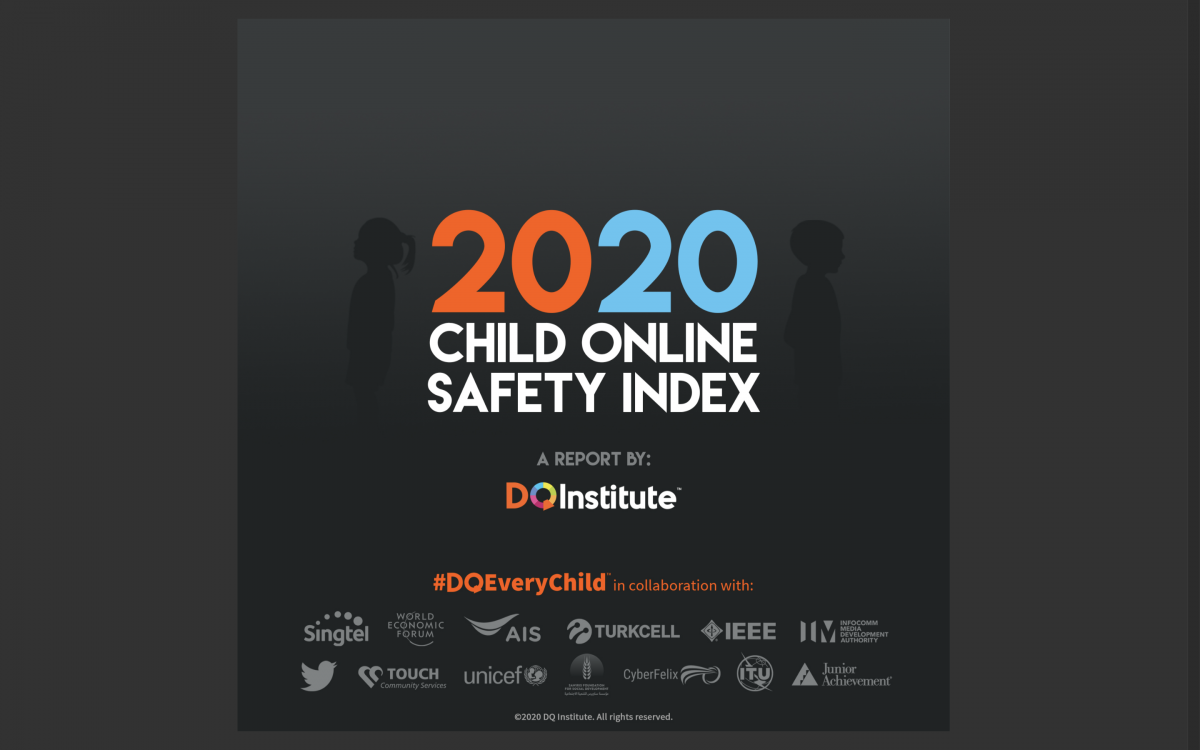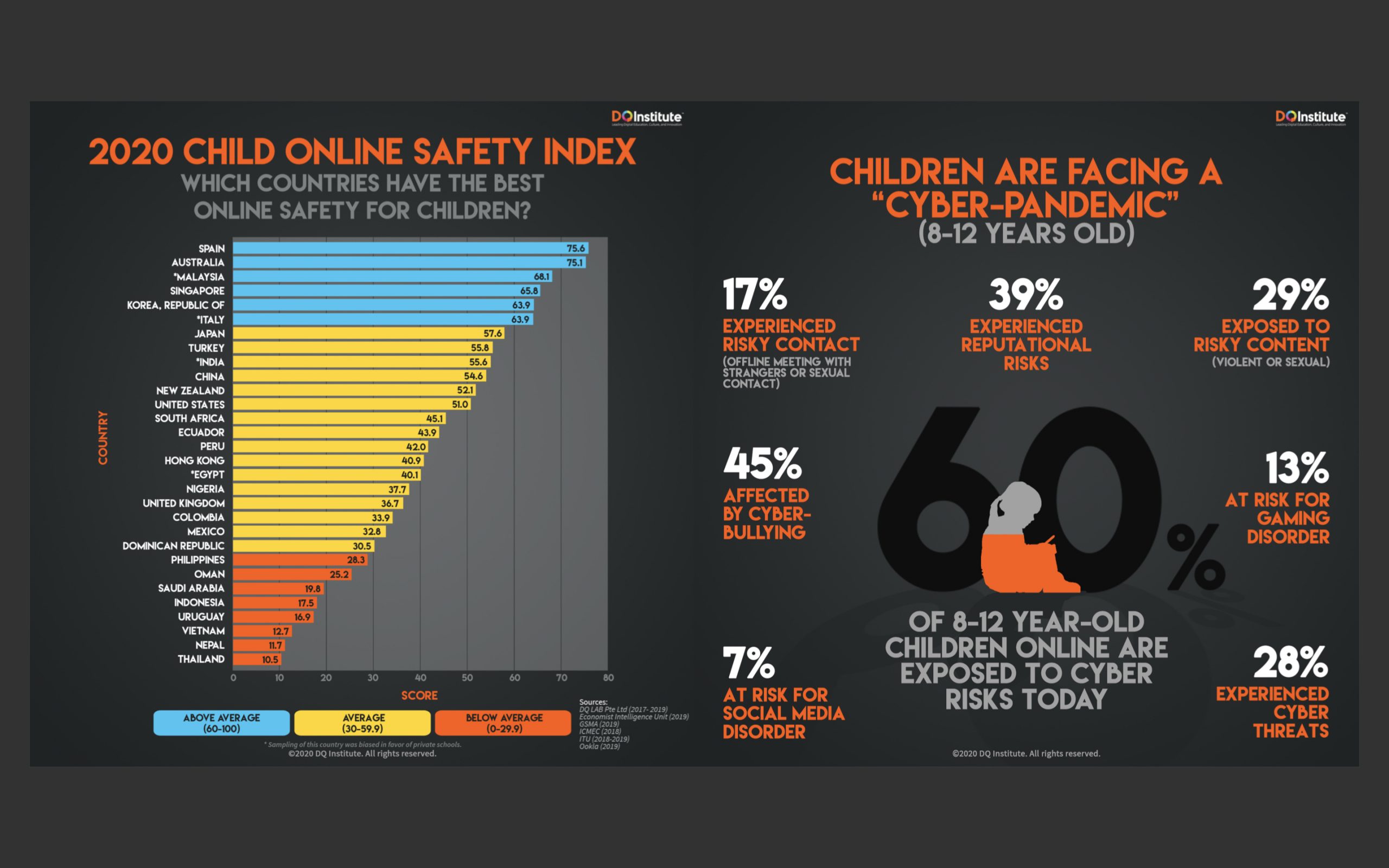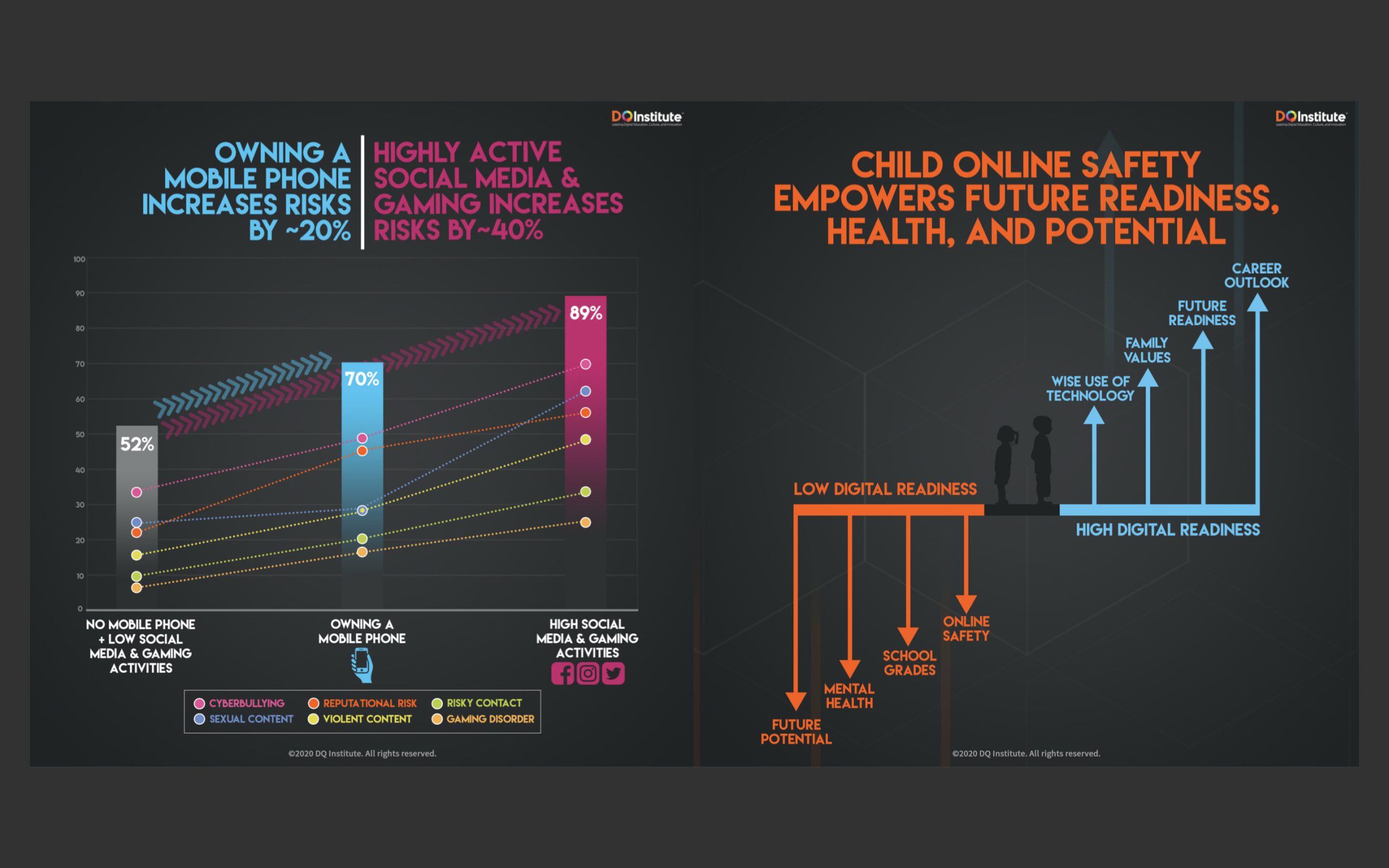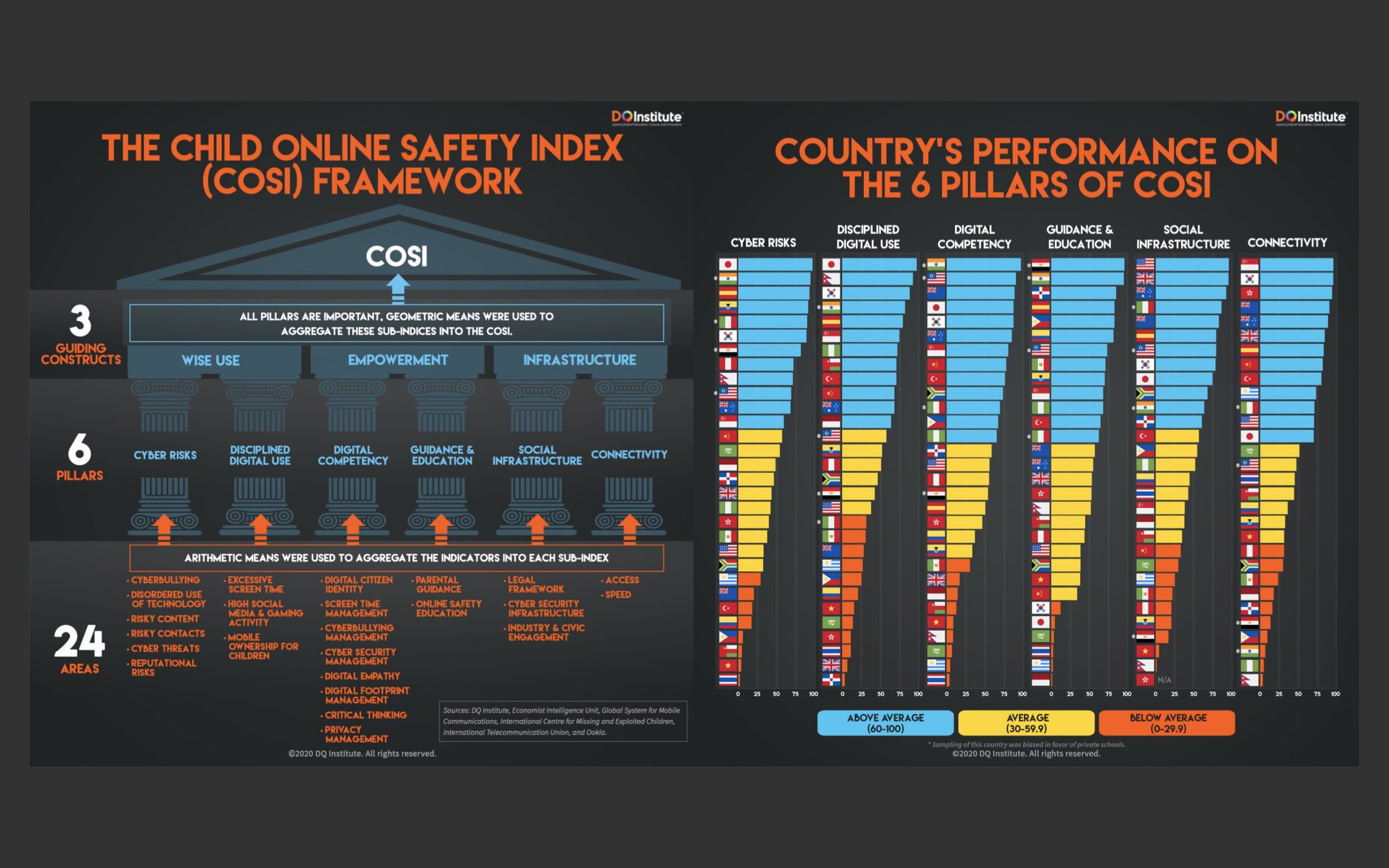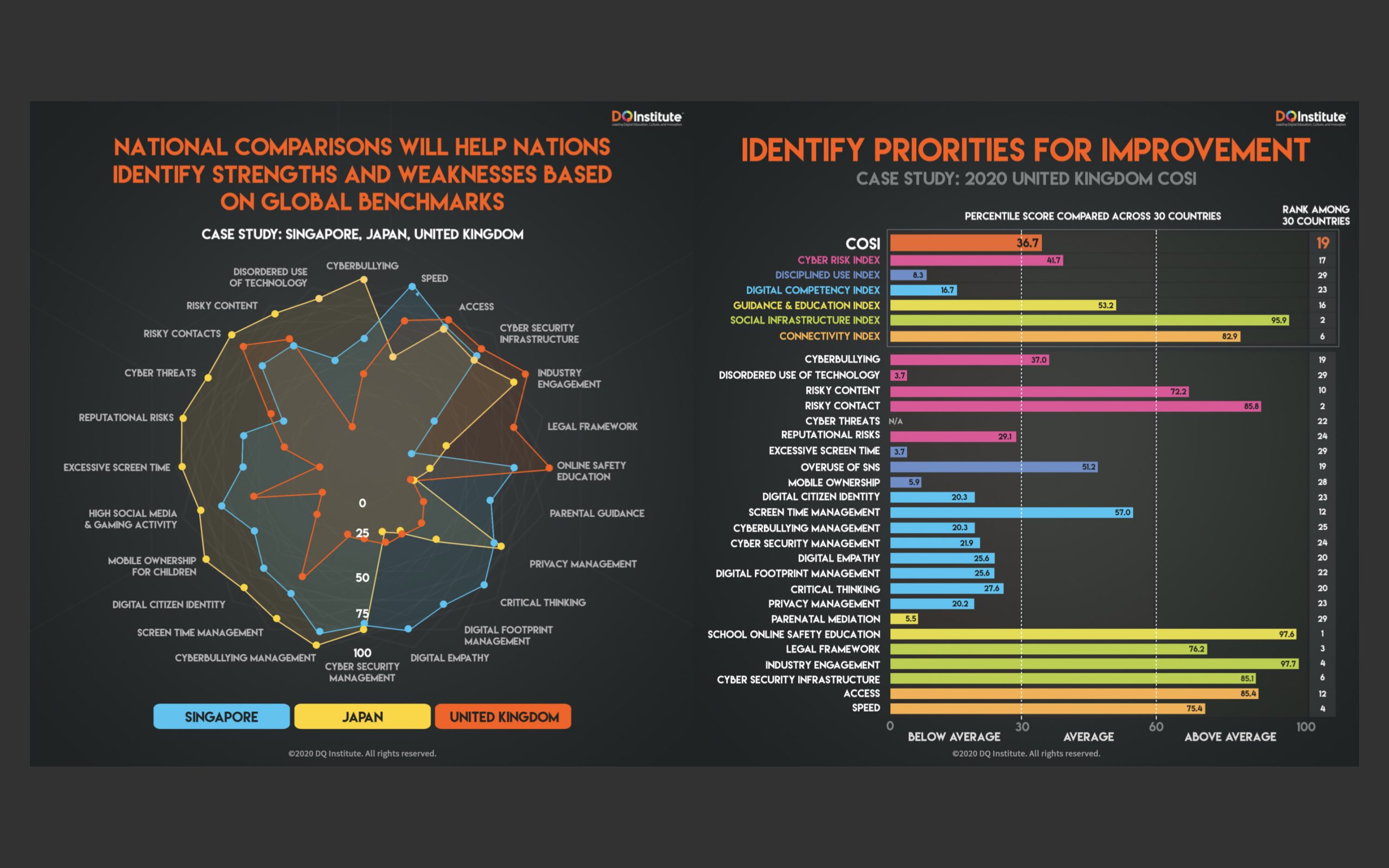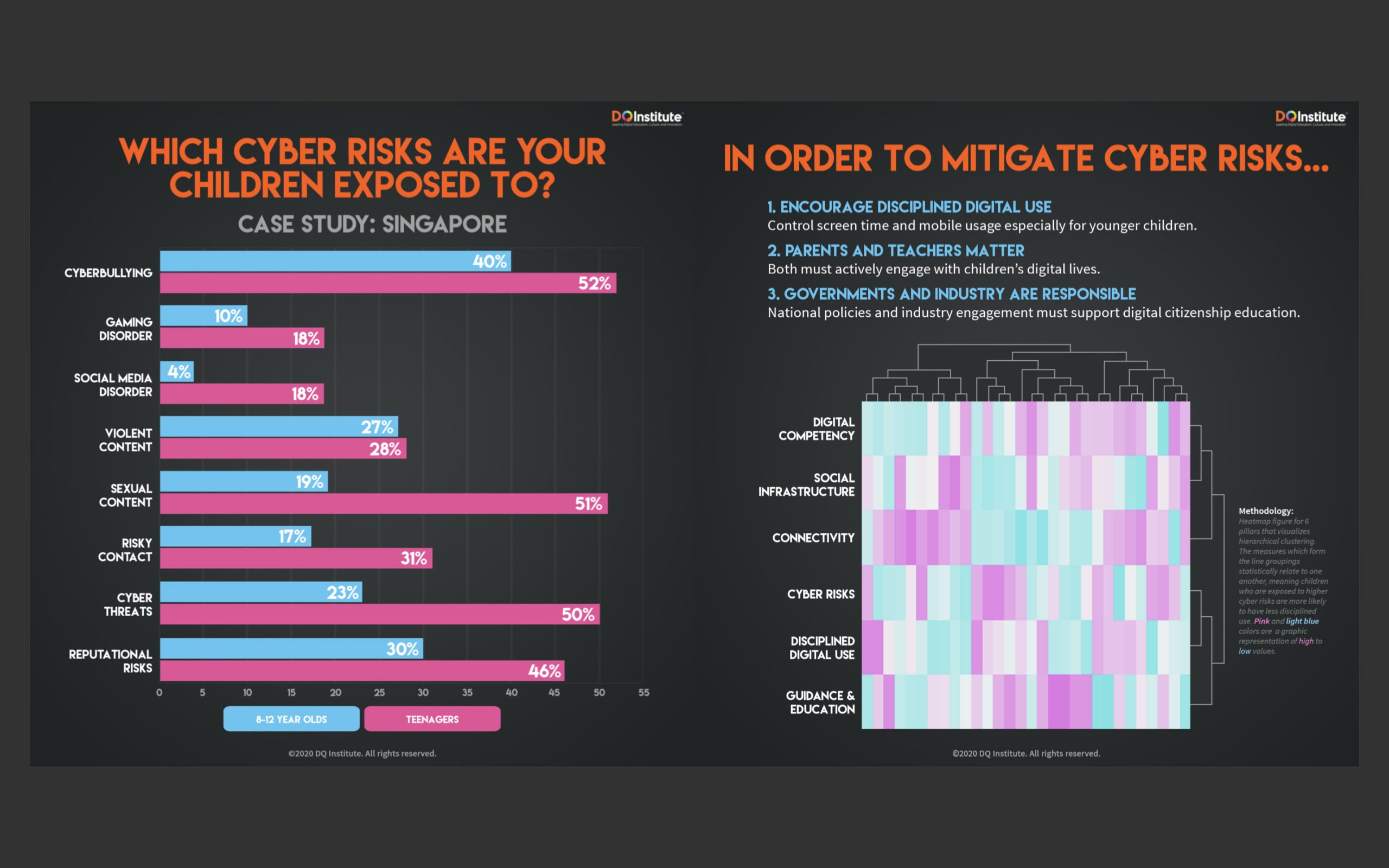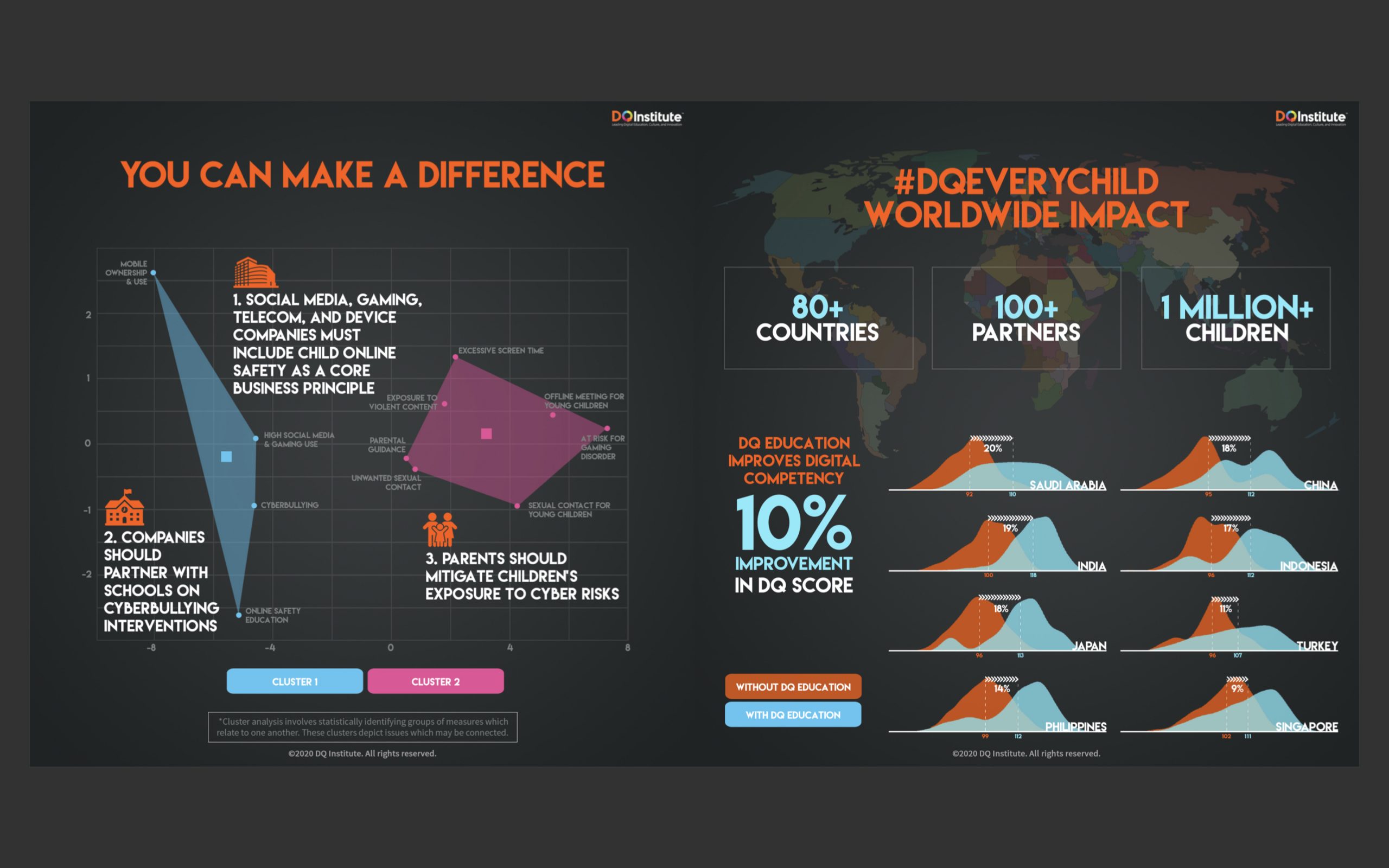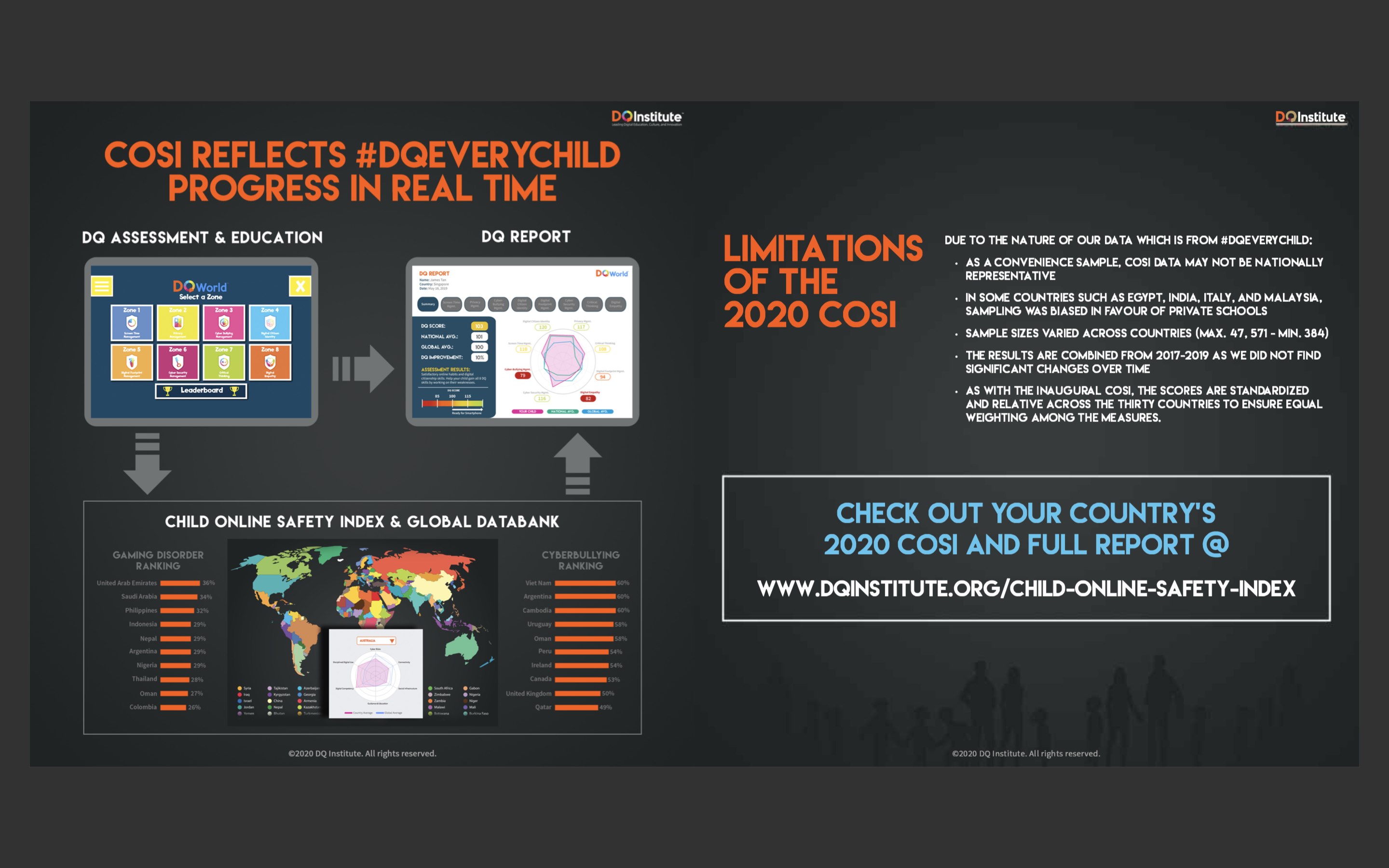2020 Child Online Safety Index (COSI)
It's Safer Internet Day 2020, and Media Literacy School is excited to publish a new report from our partners at DQ Institute: the 2020 Child Online Safety Index (COSI). The COSI features real-time data from 145,426 children and adolescents from 30 countries since 2017.
DQ Institute's findings support the work that Media Literacy School undertakes in schools across Singapore and abroad. Some of the COSI data as as follow:
- 45% of online children across the surveyed countries are affected by cyberbullying
- 39% experience reputational risks
- 29% are exposed to violent and sexual content
- 28% experience cyber threats
- 17% experience risky contact such as offline meetings with strangers or sexual contact
- 13% are at risk for a gaming disorder
- 7% are at risk for social media disorder
Media Literacy School: Practitioner Approach that Works
Since 2011, Media Literacy School has been designing and delivering quality programmes for educators, students, parents and professionals. Through videos, live experiments and quality trainer interaction, our programmes successfully engage participants in 4 areas:
- "The problem is serious"
- "The problem affects me"
- "If I take action, I will be able to address this problem"
- "I am capable of undertaking this action"
Feedback from Educators & Students
Tried and tested in more than 250 schools with more than 25,000 training hours, the engagement and effectiveness of Media Literacy School's programmes have been reflected by educators and students alike:
“The delivery of the content as other cyber wellness talks is just plain boring and interminable, but this was an exception.”
- Harish, Student“The message was important - about managing one's digital footprint and making smart choices about what they share online. The content was delivered in an interesting and compelling manner; very engaging.”
- Mdm Kristine Oehlers, Senior Teacher, Nanyang Girls' High School“It was very engaging, using real life examples to link topics to real life applications. By doing this, the program was interesting as it relates to our everyday life as people who use the internet.”
– Jordan Teo, Student"It was one of the most engaging cyber-wellness programmes I’ve attended."
- Emma Tan, Student"Relevant, insightful and interesting for students. Makes them rethink about multi-tasking and distractions. Very, very relevant and sincere in getting students to rethink about their life."
- Anonymous Teacher“Initially, I thought that the programme would be another boring old lecture, but it was a refreshing experience for me. The shocking examples about online aggression have also reminded me to be more aware of what I put up online.”
– Teo Zi Ying, Student
What Can You Do?
You too can make a difference. As Dr Yuhyun Park, Founder of the DQ Institute shares:
“Everyone in society has a role to play in turning this around. Businesses, from social media and telecommunications to hardware and gaming companies, should make child online safety a core business principle. Companies should also partner with schools to help tackle cyberbullying. And governments must back stronger digital education. Most importantly, parents must be aware that they can make changes and reduce online harm. Helping children discipline their digital use from an early age is a necessary starting point for mitigating cyber risks. Primary schools also must teach students digital citizenship as part of their standard curriculum.
Through the index, countries will be able to identify areas of improvement through global benchmarking and then better focus on deploying initiatives for their children’s online safety.”
From all of us at Media Literacy School, happy Safer Internet Day - we hope you find this report useful and would be happy to speak with you to share more! Speak to us to find out how we can partner with you to bring quality Media Literacy engagements to your organisations and families.

